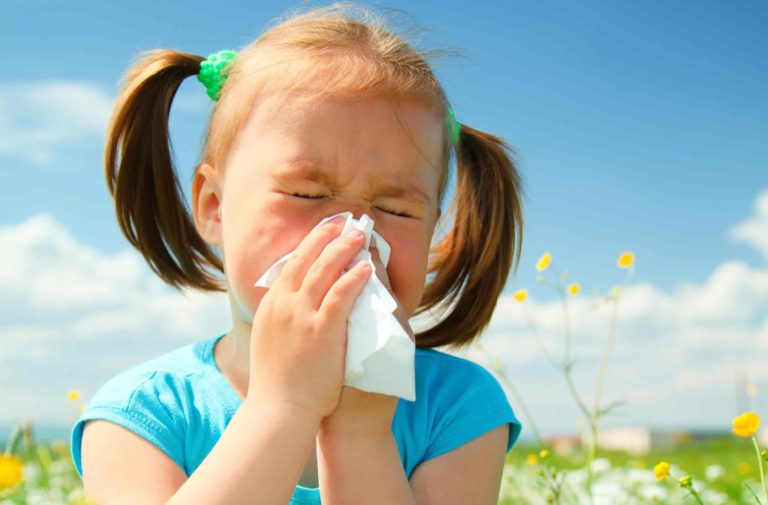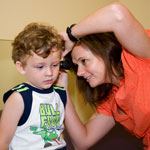
The coming of spring brings new life, beautiful flowers, luscious greenery, and warm sunshine. It also means your children will be spending more time outdoors enjoying the fresh air. This is meant to be healthy and nourishing, but sometimes it can leave your child feeling miserable with allergies.
When your child is outside playing around in the yard, be on the lookout for these common spring allergies and know how to treat them if they occur.
Symptoms of an Allergy
Seasonal allergies can develop anytime in childhood or adulthood, though they usually start to develop in children between the ages of 2 and 5. Similar to a spring cold, allergies can be quite deceiving at first, so look for the following symptoms that may warrant a visit to the doctor:
- A family history of allergies or skin sensitivity.
- Congestion that won’t quit – i.e., a runny nose that doesn’t improve after a week or so.
- Watery or itchy eyes.
- Symptoms unaccompanied by a fever or body ache.
- A rash that may appear anywhere on the body.
- A noticeable increase in symptoms on high pollen days.
If these symptoms occur and persist, an allergy specialist may need to evaluate your child.
Common Allergy Causes
Some trees and plants create more allergy triggers than others. Allergies tend to be worse on windy days when pollen and grasses are blown around in the breeze. Likewise, hay fever can cause allergy symptoms. Some of the most notorious culprits of pollen allergy are:
- Alder tree
- Ash Tree
- Elm Trees
- Pine Trees
- Poplar Trees
- Willow Trees
- Grasses like Bermuda, sweet vernal, and salt grass.
How to Treat Allergies in Children
After an initial visit to the doctor, he or she may prescribe a safe medication for your child. In the meantime, you can treat allergy symptoms at home safely and effectively:
- Keep kids inside on high-pollen or windy days.
- Use a saline solution to flush out the nasal cavities.
- Encourage warm baths or steam treatments to break up and drain mucus.
- Invest in a humidifier for the child’s bedroom.
- Have your child try spicy foods, like cayenne pepper, onions, and ginger. Spicy foods are known to help thin mucus and clear out nasal passages.
- Stock your home with plenty of moisture-rich tissues to prevent a raw nose.
- Encourage your child to drink warm tea with honey and lemon to relieve sinus congestion and a sore throat.
For additional questions about your child’s allergies, contact Pediatric Associates of Franklin at (615) 790-3200.
The information and content on our website should not be used as a substitute for medical treatment or advice from your doctor.

